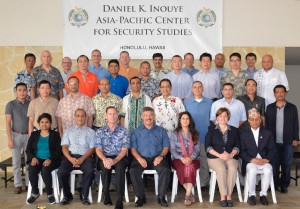
Twenty-nine senior leaders took part in the Nov. 16 to 20 Transnational Security Cooperation course (TSC 15-1) at the Daniel K. Inouye Asia-Pacific Center for Security Studies.
Nations’ capacity to build and sustain peaceful, prosperous societies is often linked to their ability to work cooperatively with their regional neighbors. Receiving an in-depth education in multinational collaboration, 29 senior leaders from 26 countries in the Asia-Pacific region completed the Transnational Security Cooperation course (TSC 15-2) Friday at the Daniel K. Inouye Asia-Pacific Center for Security Studies.
TSC is a senior executive course for military general officers and high-ranking civilian officials with current and potential future influence on security policy making at the highest levels. Fellows include leaders in military, policing, emergency response, foreign relations, economic development and civil government.
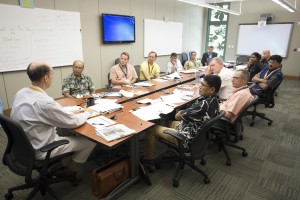
Senior leaders from Asia-Pacific nations take part in a seminar session during the Transnational Security Cooperation course (TSC 15-2) at the Daniel K. Inouye Asia-Pacific Center for Security Studies.
In the Nov. 16 to 20 iteration, Fellows worked in teams to develop strategies in response to scenarios involving an Ebola outbreak and cyber attacks against vital infrastructure in the Asia-Pacific region. Teams analyzed impacts on critical entities, such as economic, public health and governance sectors, and formed and documented response measures and potential solutions. These conceptual exercises were designed to promote interagency collaboration in solving local, regional and even global security-related challenges.
An expanded version of this article will be available next week.
-END-


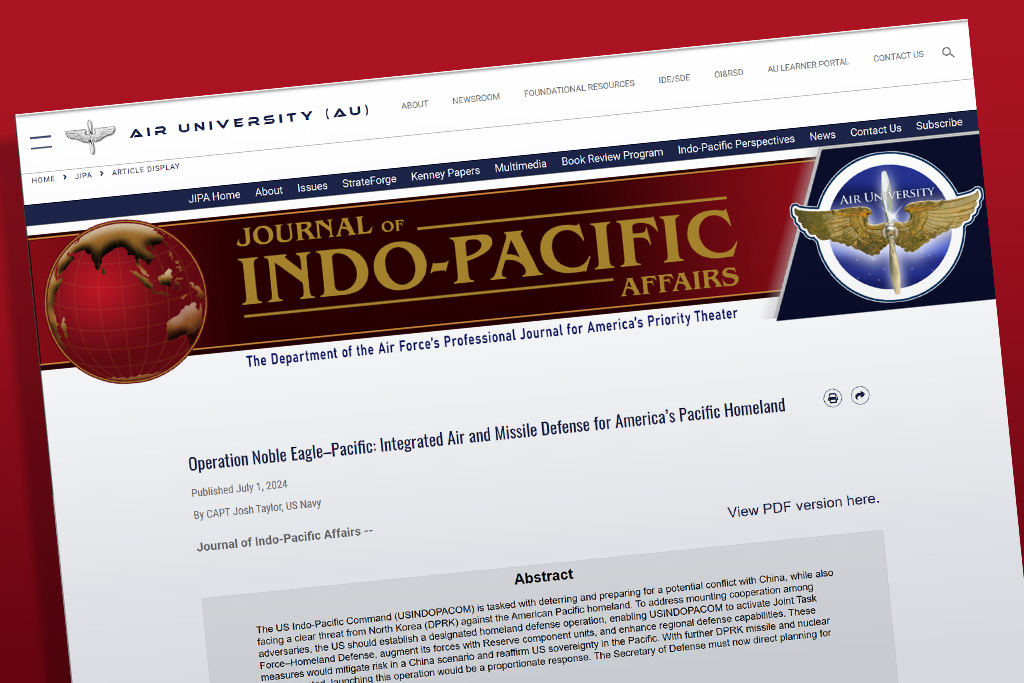
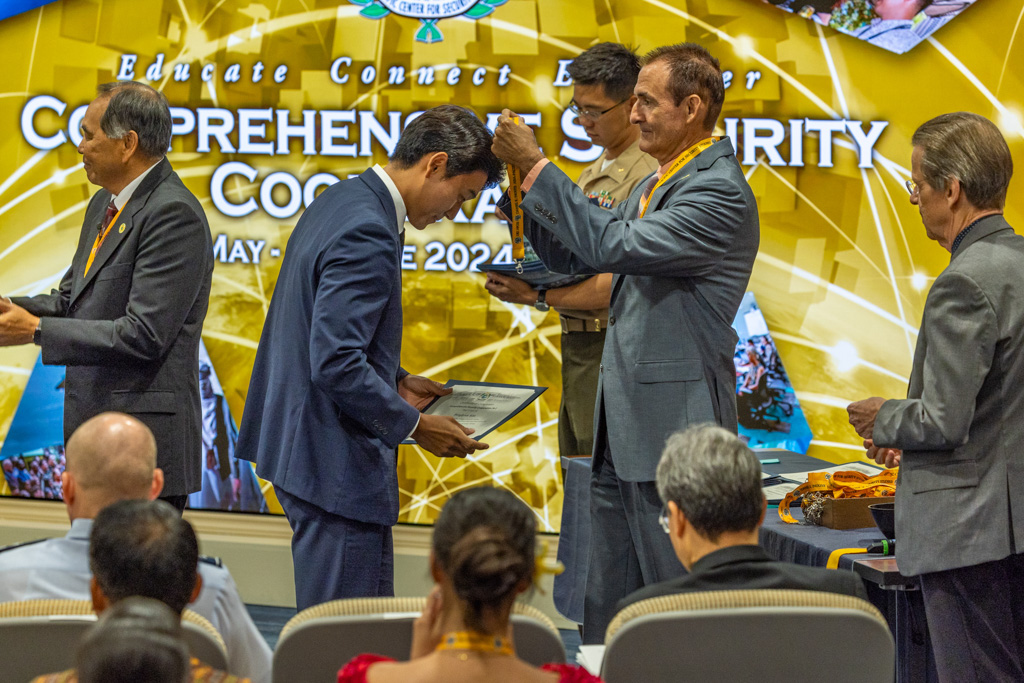
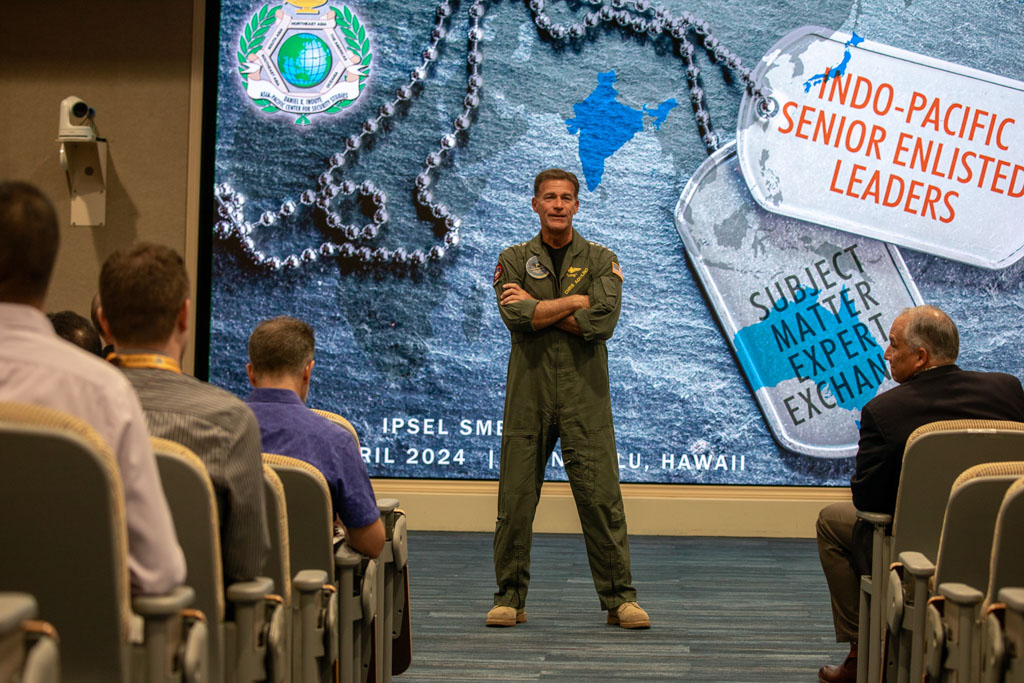




Leave A Comment